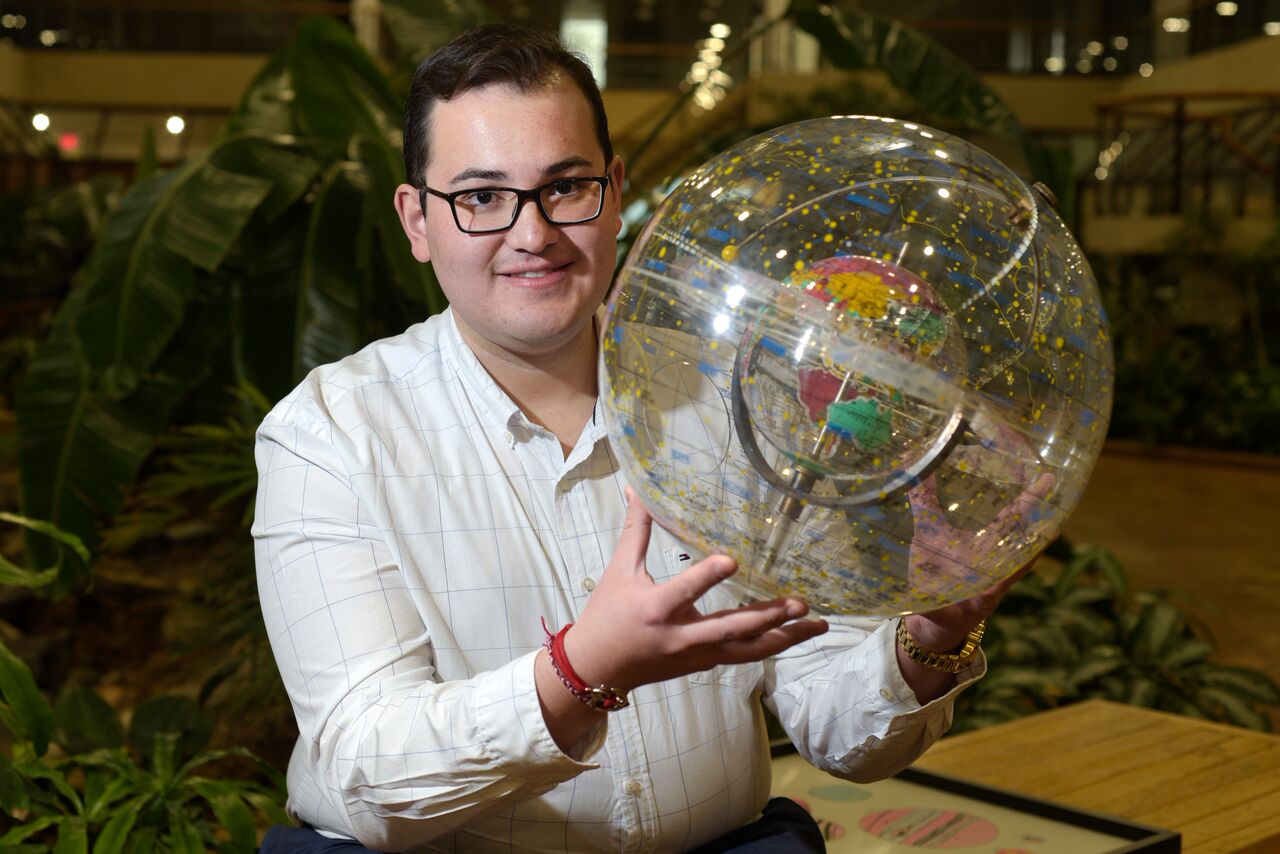
Luis Welbanks wins prestigious NASA Fellowship to study exoplanet atmospheric properties
These outstanding young scientists are the future of astrophysics, and their impact on our understanding of the cosmos will be felt for decades to come.
Paul Hertz, NASA
A Gates Cambridge Scholar has won a prestigious NASA Fellowship to continue his studies on exoplanets.
Luis Welbanks has been awarded a NASA Hubble Fellowship and will begin his programme in the autumn at Arizona State University.
The Fellowship programme “enables outstanding postdoctoral scientists to pursue independent research in any area of NASA Astrophysics, using theory, observation, experimentation, or instrument development”. Over 400 applicants competed for the fellowships, which provide up to three years’ financial support, and only 24 were successful.
The programme is split into three parts and Luis will be one of seven Sagan Fellows focused on the ‘Are we alone?’ theme.
Paul Hertz, Director of Astrophysics at NASA Headquarters in Washington, said: “The annual selection of NASA Hubble Fellows always fills me with hope. These outstanding young scientists are the future of astrophysics, and their impact on our understanding of the cosmos will be felt for decades to come.”
Luis [2017], who is from Mexico, is doing a PhD at the Institute of Astronomy in Cambridge. His research has focused on deciphering the atmospheric composition of exoplanets – planets outside the solar system – by interpreting spectroscopic observations taken with ground- and space-based facilities.
As a Sagan Fellow, he will focus on developing next-generation inference frameworks, known as retrievals, to maximise the information derived from transmission spectra of exoplanets in a physically plausible way.
Luis will use a combination of theoretical models and upcoming spectroscopic observations to enable high-definition exo-atmospheric characterisation with transit spectroscopy. The aim is to provide a data-driven understanding of the model considerations needed to provide rigorous and credible estimates of exoplanet atmospheric properties.












